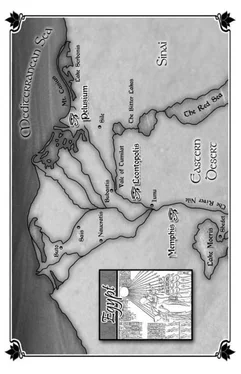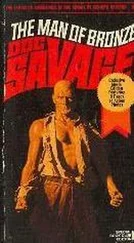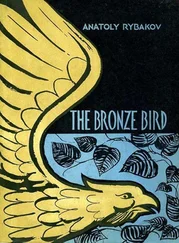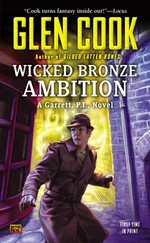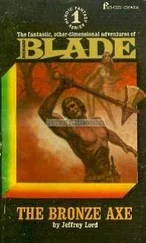Scott Oden - Men of Bronze
Здесь есть возможность читать онлайн «Scott Oden - Men of Bronze» весь текст электронной книги совершенно бесплатно (целиком полную версию без сокращений). В некоторых случаях можно слушать аудио, скачать через торрент в формате fb2 и присутствует краткое содержание. Жанр: Исторические приключения, на английском языке. Описание произведения, (предисловие) а так же отзывы посетителей доступны на портале библиотеки ЛибКат.
- Название:Men of Bronze
- Автор:
- Жанр:
- Год:неизвестен
- ISBN:нет данных
- Рейтинг книги:3 / 5. Голосов: 1
-
Избранное:Добавить в избранное
- Отзывы:
-
Ваша оценка:
- 60
- 1
- 2
- 3
- 4
- 5
Men of Bronze: краткое содержание, описание и аннотация
Предлагаем к чтению аннотацию, описание, краткое содержание или предисловие (зависит от того, что написал сам автор книги «Men of Bronze»). Если вы не нашли необходимую информацию о книге — напишите в комментариях, мы постараемся отыскать её.
Men of Bronze — читать онлайн бесплатно полную книгу (весь текст) целиком
Ниже представлен текст книги, разбитый по страницам. Система сохранения места последней прочитанной страницы, позволяет с удобством читать онлайн бесплатно книгу «Men of Bronze», без необходимости каждый раз заново искать на чём Вы остановились. Поставьте закладку, и сможете в любой момент перейти на страницу, на которой закончили чтение.
Интервал:
Закладка:
"Who leads them?"
"Most of the letters came from a man called Idu, son of Menkaura. A merchant, of all things," Lysistratis said, with a moue of distaste. His Spartan heritage gave him a healthy disdain for those who made their lives off the needs of others. "A dealer of wine."
Phanes grunted. "Menkaura?"
"You know him?"
"There was a general from Memphis in the army of old Pharaoh Apries, during the Cyrene campaign. They called him," Phanes barely suppressed a grin, "the Desert Hawk."
"If he's the same man, then his son does not share his martial pretensions," Lysistratis said. The chariot passed beneath the twin colossi of Pharaoh flanking the gates leading into the fortress enclosure of Ineb-hedj, the White Walls. Hoplite sentries snapped to attention, their spear-butts grinding against the flagstones. Bronze flashed in the fading sunlight. Ahead, on a manmade acropolis, the citadel walls reared above the city it professed to guard.
"Use this Idu as an example," Phanes said, his face diabolical in the thickening shadow. "Menkaura, too. I want these Egyptians to bleed for me as I bled for them, Lysistratis. I want them to fear me before I pillage their peaceful little world."
Callisthenes of Naucratis paced in a tight circle, his stubby fingers twittering with a finely carved jasper scarab that lay on his breast. Lamplight gleamed on his shaven skull, and the green malachite outlining his eyes — an Egyptian trick to lessen the sun's harsh glare — gave Callisthenes a sinister cast incongruous with the colorful linen robes draping his fleshy frame.
The antechamber of the throne room at Memphis recalled the glory of an age long past, an epoch when Pharaoh's shadow stretched across the known world. Under incised and painted murals depicting the battle at Qadesh, dark bearded emissaries of the Hittite king would have felt outrage at the portrayal of their lord as coward. Dark-skinned Nubians, accounted the tallest men on earth, would have been made to feel small and inconsequential beneath the mammoth columns that supported the ceiling, their shafts like stalks of papyrus hewn from cold white limestone. Messengers from Palestine would have found the bound figures etched into the stone tiles to be a source of distress: at every step, they would grind their captive ancestors beneath their bare feet. The effect the chamber had upon foreigners who came to Memphis, whether a tribute bearer or princely ambassador, was to remind them of their place by reinforcing the splendor and majesty of the Lord of the Two Lands.
An effect wasted on the two hoplites standing nearby.
They were part of the squad tasked with holding inviolate the inner throne room. In rotating shifts they ground their spears outside the sealed gold-sheathed doors, bronze statues who would spring to murderous life should an intruder dare even to touch jamb, threshold, or lintel. Unlike their brothers walking sentry on the ramparts, the door wardens' vista never changed: cut and fitted stone, painted plaster, gilt, leaf, and inlay; a landscape of opulence that jaded their senses. Callisthenes stalked past them, lost in thought.
"Slow down, lad," said the elder of the pair, a tough shank of whalebone, his face seamed by sun, wind, and the indelible march of time. He spoke a rough patois, Ionian Greek leavened with words drawn from Egyptian and Persian. "You're making my head ache. Take a seat and rest. The general's coming as quick as he can."
Callisthenes ignored him. He stopped and stared at the life-sized statues of ancient pharaohs lining the walls, their stony faces in sharp relief: the powerful visage of Ramses the Great; hawkish Thutmoses, savage warrior-king who brought Palestine to its knees; stern Horemheb, who was general before he was pharaoh. The olden kings stared back with cold, accusing eyes.
Beneath their gaze, Callisthenes experienced a sense of loathing for his Greek heritage. How could his own people engender such revulsion in him? His Hellenic cousins possessed a fighting spirit without equal, but they cheapened it through an overweening sense of pride. Kings could buy their loyalty like a prostitute's wares, and still they called others barbarians.
Callisthenes was a child of two cultures, two philosophies, two religions; as drawn to the quiet precepts of the sage Ptahhotep as he was to the blood and thunder of Homer's epics. Among his countrymen at Naucratis, he was anathema, a traitor to his people; at Memphis, he was an interloper, a Greek masquerading as an Egyptian. To whom did he owe his allegiance? A complex question, and one that, since departing for Delphi four months ago, had never left the forefront of his mind.
Callisthenes' journey to central Greece for Phanes of Halicarnassus came at the behest of his father, a merchant and politician of Naucratis. Old Rhianus could smell a chance for profit the same way a hound smelled blood. "Egypt is rotting," he would say to Callisthenes on his infrequent trips home. "A cancer is gnawing away at Pharaoh's guts, and when he dies the country will die with him." Rhianus wanted his son in a position to benefit from Egypt's illness; never had he asked Callisthenes what he wanted. Perhaps that was a godsend, since his desires were nebulous, hazy. The only thing Callisthenes knew for certain was the world at large should let his adoptive homeland alone. Let the Egyptians go about their business; let the Nile rise and fall as it had for a thousand generations.
Red-orange light flooded the antechamber as an exterior door opened and shut again, bathing the room in the brilliant gleam of dusk before plunging it back into artificial night. The hoplite guards snapped erect. A mask of politesse slipped easily over Callisthenes' face, impenetrable, flawless, transforming him into a young man so taken by tales of valor that he would do anything to be viewed as an equal in the fraternity of war.
Phanes strode across the antechamber, the Spartan in his wake calling for one of the hoplites to fetch water and a robe for their general. Callisthenes flashed an amiable smile. He inclined his head and was preparing to launch into a litany of greeting when Phanes shattered decorum by sweeping the merchant up into a rib-splintering hug.
"Zeus Savior! You are a welcome sight, Callisthenes! Waiting for your return smacked of the punishment of Tantalus, and I've found it not to my liking! Great gods of Olympus! I am pleased to see you!" Phanes grinned as he loosed Callisthenes. The merchant staggered and righted himself with as much dignity as he could muster.
"And I you, general. Forgive my delay. We had unfavorable weather after reaching Athens. We were forced to sacrifice to Uadj-ur and the four winds before we could make good our departure by sea."
Phanes eyed him critically. "I imagined a trip to the heart of Hellas would have broken you of this Egyptian affectation. Still, Delphi seems to have agreed with you. How fared Naucratis in the Pythian Games?"
The merchant smiled. "Half the world, it seems, turned out to see my own cousin, Oeolycos, take the prize of valor in the pentathlon; the other half came to see the new temple of Apollo. A splendid structure. Your donations were well spent." Callisthenes stroked the scarab hanging around his neck. "Forgive me for being brusque, general, but I am weary. Shall we finish this?"
A servant bustled up, bearing a bronze ewer of water and a linen mantle. Phanes waved him away. The general vibrated with suppressed excitement — his eyes were glassy and bright, feverish, as if the juice of the opium poppy surged through his veins. "On to business, then."
From inside his robe, Callisthenes withdrew a tube carved from a branch of olive wood, its surface burnished from years of use. Lead sealed its ends, the metal impressed with the symbol of the oracle at Delphi. "I gave your original inquiry to the prophetai and left it in their care. When I returned after the proscribed time, I received this. I pray it provides you the insight of Apollo." Callisthenes made to leave, but a gesture from Phanes forestalled him.
Читать дальшеИнтервал:
Закладка:
Похожие книги на «Men of Bronze»
Представляем Вашему вниманию похожие книги на «Men of Bronze» списком для выбора. Мы отобрали схожую по названию и смыслу литературу в надежде предоставить читателям больше вариантов отыскать новые, интересные, ещё непрочитанные произведения.
Обсуждение, отзывы о книге «Men of Bronze» и просто собственные мнения читателей. Оставьте ваши комментарии, напишите, что Вы думаете о произведении, его смысле или главных героях. Укажите что конкретно понравилось, а что нет, и почему Вы так считаете.
